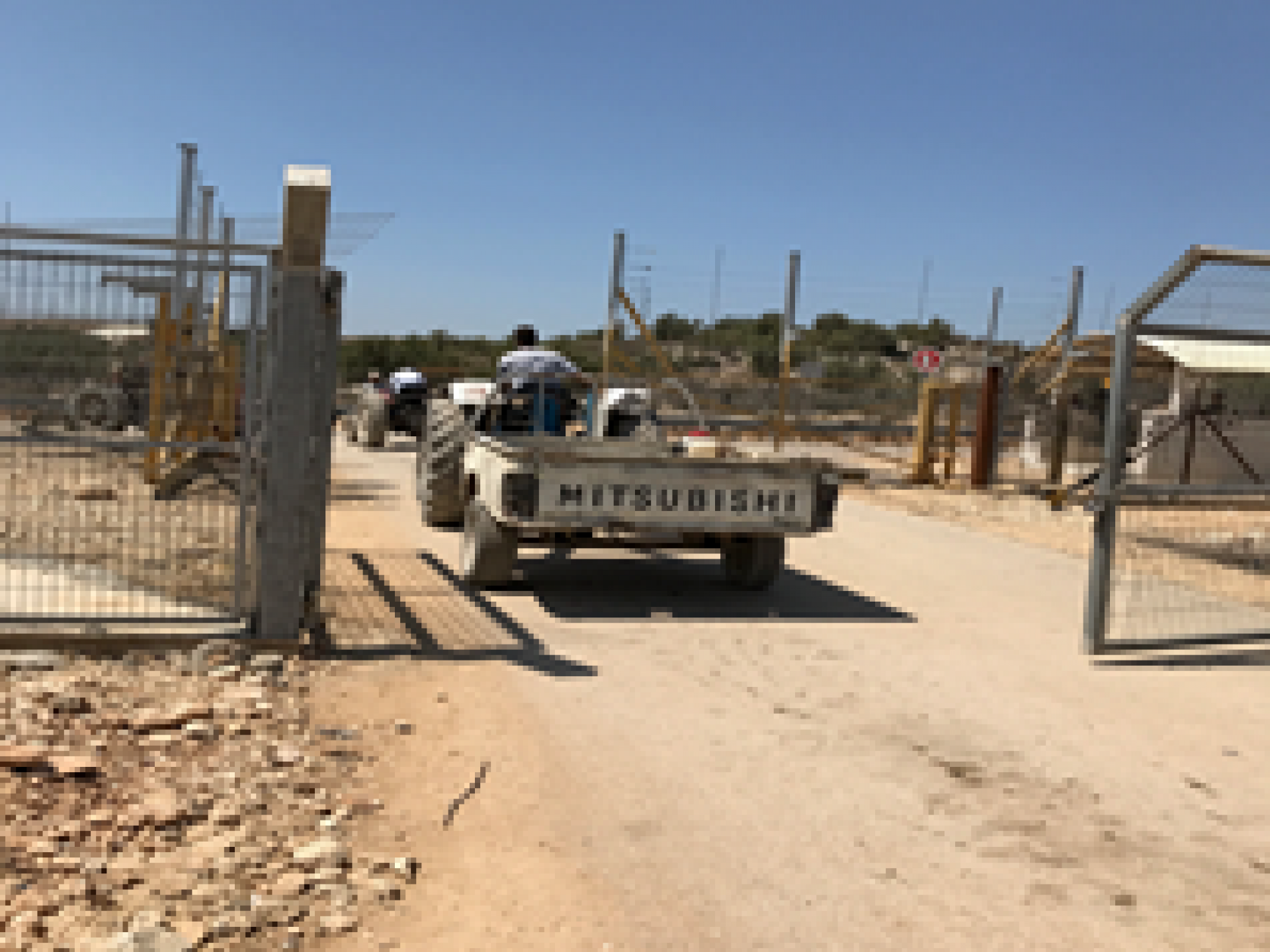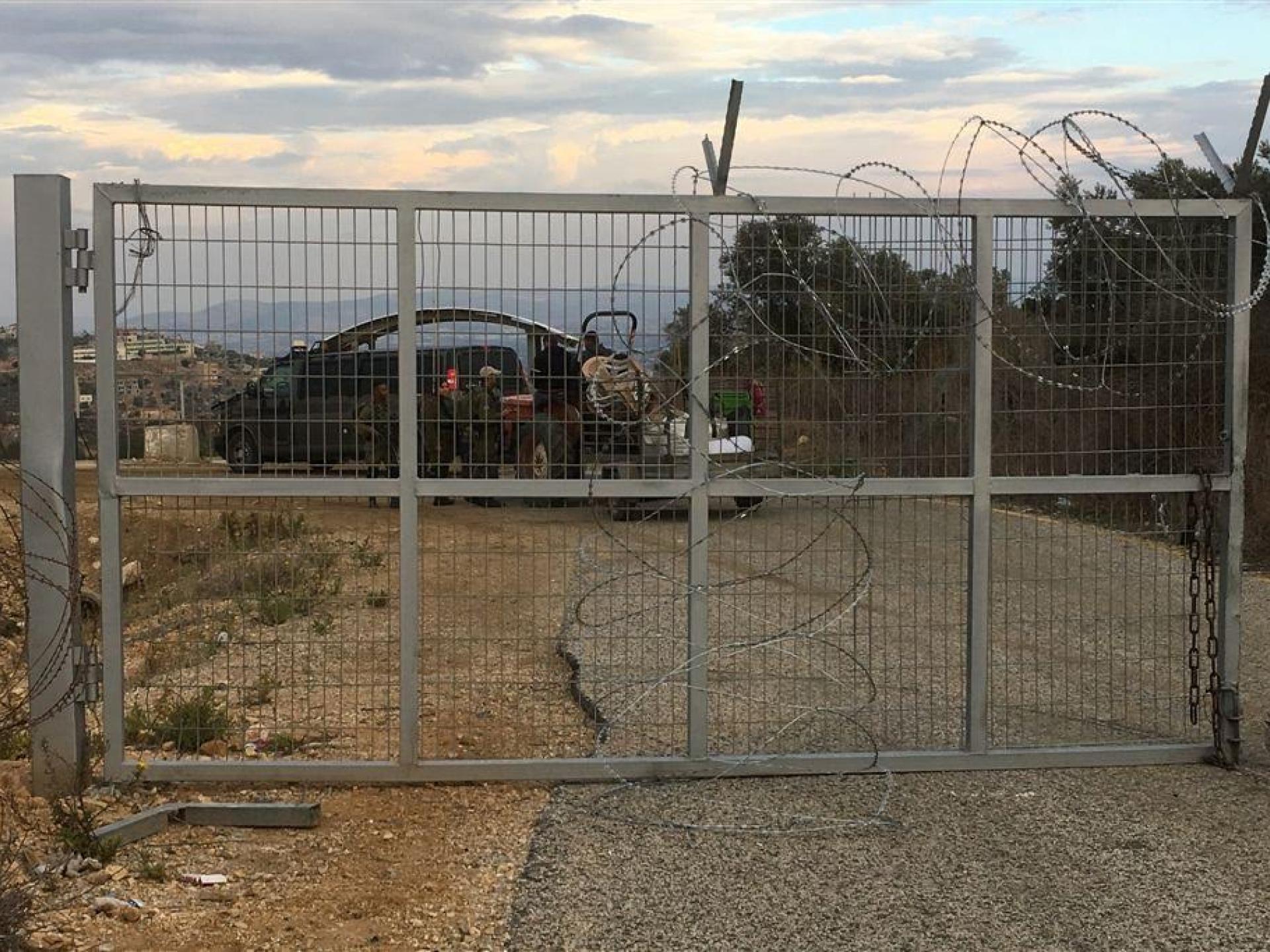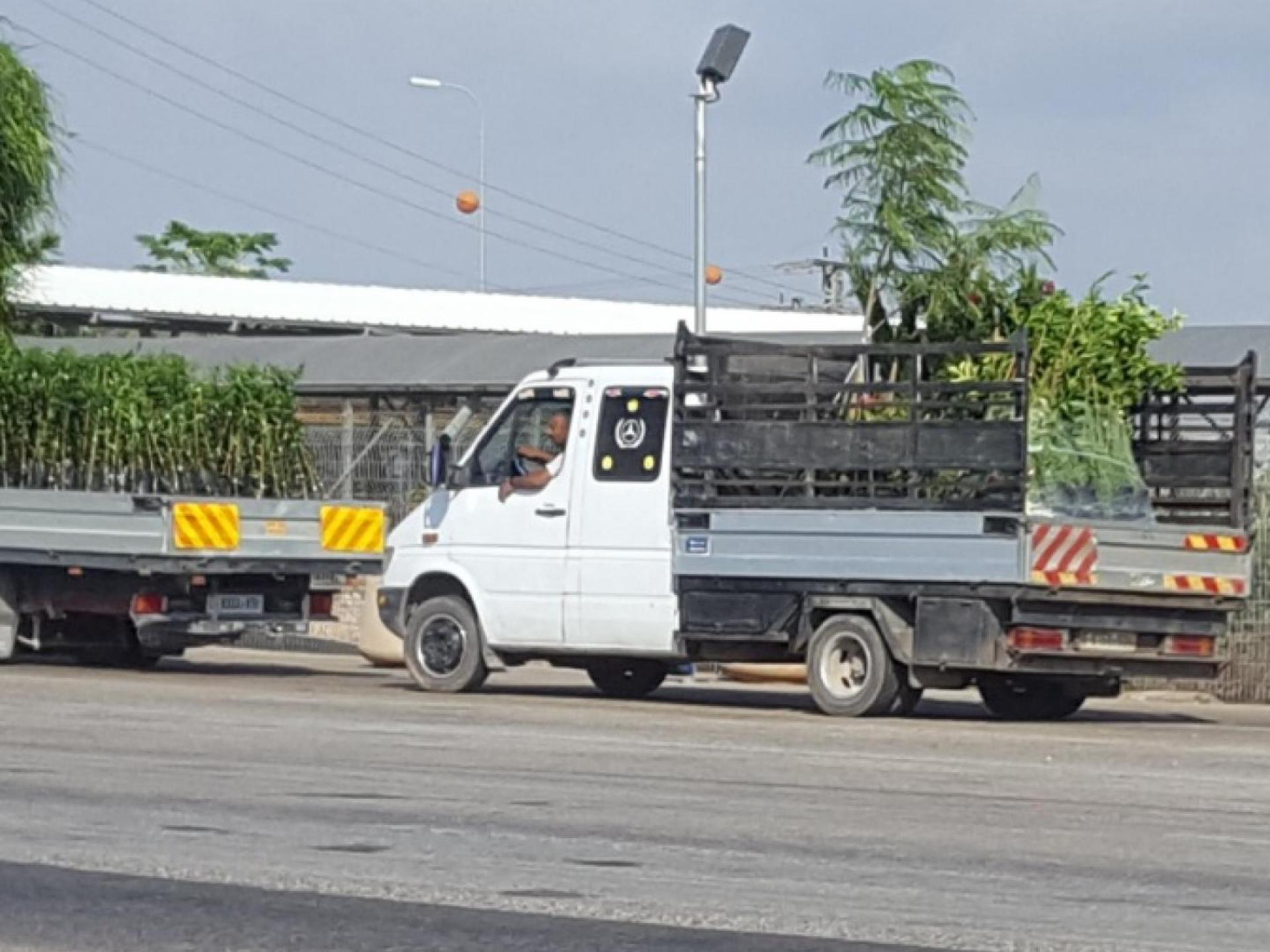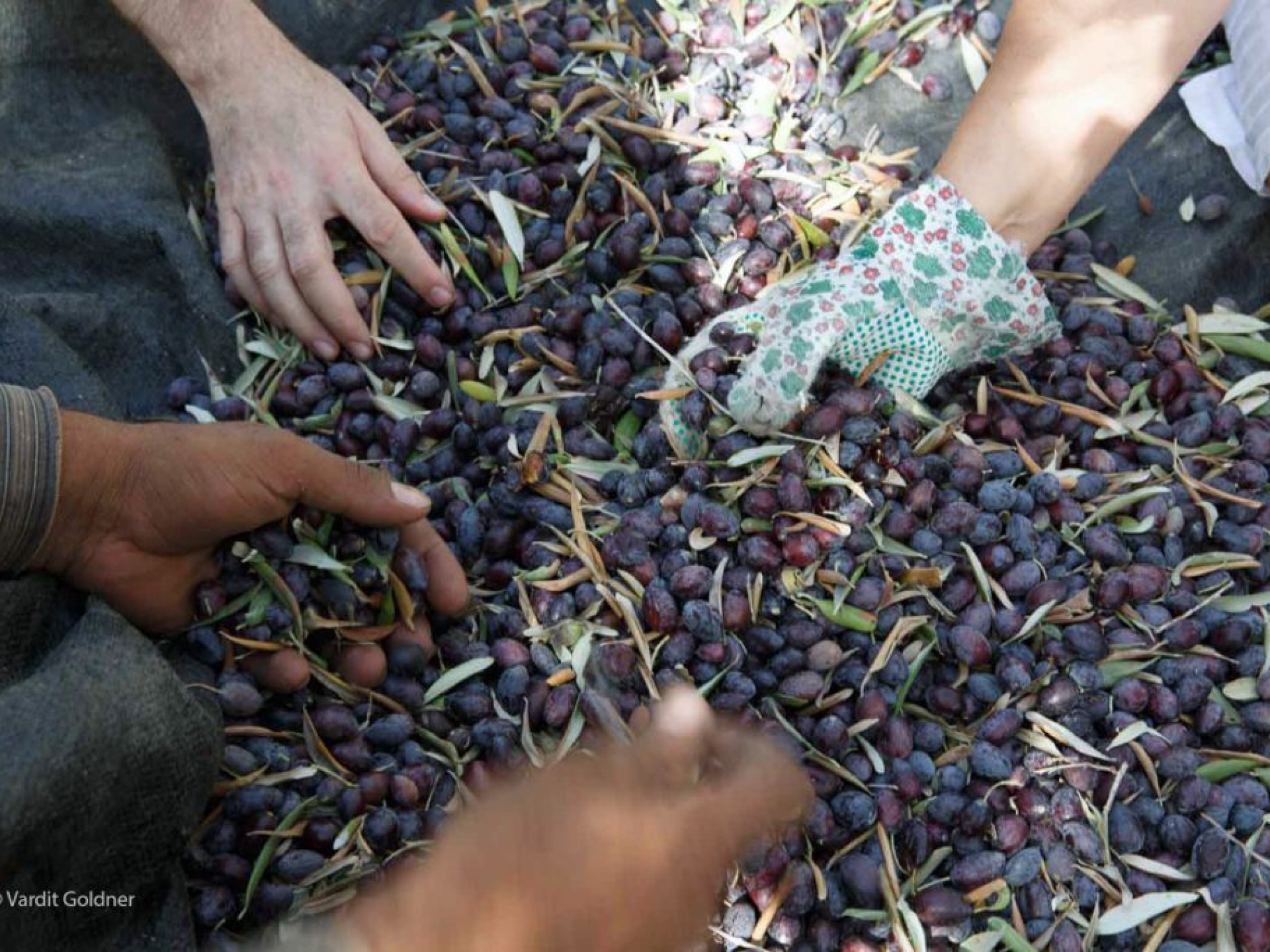?Can Palestinian Farmers Cultivate their Fields Located Beyond the Separation Barrier
,The seam zone, agricultural checkpoints, draconian regulations
... hostile settlers, the olive harvest
?What is our role in all of this
Machsomwatch volunteers continued to monitor and report on problems faced by Palestinian farmers in the Qalqilya and Tul Karm areas whose lands are separated from their village by the separation barrier.
Our monitoring focuses on two major issues: worsening conditions for people applying for permits to tend their fields beyond the separation barrier; and belated and irregular opening hours of the agricultural checkpoints through which the farmers must pass in order to access their fields. The agricultural checkpoints open only two or three times a day for 15 to 45 minutes at a time. Some checkpoints open only during the olive harvest season. Even in places where the gates are opened on time, we have witnessed a reduced number of people crossing. We assume that one of the reasons for this is the reduction in the number of permits issued. Other factors are the difficulties of farming under such restriction which force the farmers to grow very few crops (mostly olives and thyme). However, in an area where the fence was re-routed westward as a result of a Supreme Court ruling, land is farmed intensively, fields are fenced and irrigated and the harvest varied.
are opened on time, we have witnessed a reduced number of people crossing. We assume that one of the reasons for this is the reduction in the number of permits issued. Other factors are the difficulties of farming under such restriction which force the farmers to grow very few crops (mostly olives and thyme). However, in an area where the fence was re-routed westward as a result of a Supreme Court ruling, land is farmed intensively, fields are fenced and irrigated and the harvest varied.
When the separation barrier was erected, Palestinian village representatives were promised that it would not prevent them from continuing to carry out their work in the fields. In an attempt to get a better and more detailed overview of this situation we have appointed a team of volunteers who focus on documenting the current status of Palestinian farmers and villages which have been separated from their farmland and who suffer from the many restrictions imposed on their farming.



In July 2018, something bad happened at Habla, one of the largest agricultural checkpoints situated on Palestinian land, accessible from Israel without passing any checkpoint. Habla serves Palestinian land and plant nursery owners from Qalqilya and Habla who hold a special permit to reach their land through this checkpoint. After 15 years of unhampered crossing of trucks bearing saplings and trees, fruit and vegetables in both directions, and without any explanation or any security incident involving the place, the farmers can no longer take their goods from the West Bank through the Habla Checkpoint to the nurseries directly on the other side of the checkpoint.
Now they must cross with their saplings, fruit and vegetables - through Eliyahu Checkpoint, which serves mostly Israelis and is one of the two main entry and exit points to the West Banks. Trucks with this merchandise can only cross after 9 am. At the Eliyahu Checkpoint each truck is thoroughly inspected, lift forks remove all the flower pots and vegetable crates to a special surface, sniffer dogs and their trainers arrive and inspect everything, then it is all lifted up to the truck again - the whole process lasts at least 30 minutes. A crossing that used to take 10 minutes at Habla now takes between an hour and two hours, depending on the number of trucks waiting in line.
The Olive Harvest this year did not yield large crops due to a pest infestation that infected the trees. Access for Palestinian farmers to their olive groves situated between the separation fence and the Green Line and in the proximity of Jewish settlements is very limited. During olive harvest season, which lasts two months, many seasonal checkpoints which are closed the rest of the year are supposed to open. In fact, we are told by the farmers we meet in various villages that some of these checkpoints are opened for only three day and some not at all. In addition, the number of people issued permits especially for the olive harvest season is only 15% - 30% of those who apply for such permits. On top of these restrictions, our volunteers learned about problems concerning access, disruptions and numerous cases of harassment. For example, near the Bracha Settlement (near Nablus), Palestinian olive-grove owners had permits to harvest near the settlement but the settlers chased them away by hurling stones at them. On Saturdays, Machsomwatch volunteers often join groups helping harvest olives throughout the West Bank. As Amira Hass wrote in October:
This scene repeats itself time and again: Israelis arrive from the nearby settlements, chase off the olive grove owners and damage trees. The material damages are great, the personal psychological injury is unquantifiable. The Palestinian, for their part, know that their complaints will lead to absolutely nothing.”
Amira Hass, Haaretz, October 26, 2018

